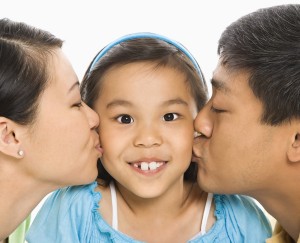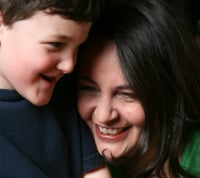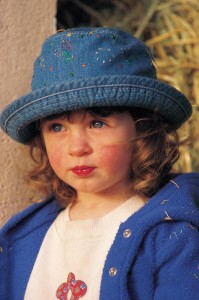 Conscious Parenting isn’t a strategy, or a technique or something you can take a course on. Well, I guess you could take a course on it, but it wouldn’t be a sit-and-be-lectured-to course, it would be an experiential immersion into your own conscious awakening.
Conscious Parenting isn’t a strategy, or a technique or something you can take a course on. Well, I guess you could take a course on it, but it wouldn’t be a sit-and-be-lectured-to course, it would be an experiential immersion into your own conscious awakening.
Conscious Parenting is a way of living life with awareness and of seeing your child as a holistic being – taking into account every aspect of who your child is and what informs who they are.
Consciousness is not a sometimes thing. Consequently, Conscious Parenting becomes a 24/7 awareness festival that can be tiring. But at the same time, through this deep level of awareness, Conscious Parenting blesses you with the opportunity to see, experience, and support your child, making your parenting experience richer and more rewarding.
Here are 10 essential elements of Conscious Parenting– not the top 10 or THE 10, just simply 10. I’m going to list them and explain them briefly and then in future posts I’ll share stories and insights with ways to develop and incorporate these elements into your everyday life.
Seeing Your Child: When children are born they are not ‘empty vessels’. They are big Spirits in little bodies trying to figure out how to make this thing called a body work and they are trying to figure out how to navigate the world they find themselves in. They are also here to learn their own life lessons. These lessons begin early-on whether it’s with the kid who steals your daughter’s toy or with your son’s frustration at not being able to say what he needs to say. Our opportunity is to see our children as conscious beings. To see them as big powerful Spirits in tiny little bodies and to offer the insight, guidance and support they need to remain conscious beings.
Listen To and Hear Your Child: It can be easy to tune out or not really ‘hear’ what our kids are saying, especially if your child is anything like mine. He never stops talking and much of his conversation is peppered with question after question. But on the whole, taking the time to listen and to hear establishes base for good communications as your child gets older. When you listen and hear, your child learns many important things. Among these are that she can talk to you, that you are interested in what she has to say and that what she has to say matters. She also learns by example how to be a good listener.
Teachable Moments: Learning starts at the beginning. I believe it starts before we even conceive, but we’ll talk about that in a future post. So for simplicity let’s say learning begins the moment your little bundle takes his first breath. He’s already on the road to figuring out how his body works and what he needs to keep it working. As Conscious Parents we can use every moment as a teachable moment; as an opportunity to explain some aspect of who we are, why we are here and what we are trying to do.
As your child moves through his day, (no matter how old he is), help him to understand, to find reason, to snap the pieces of the big puzzle together by explaining how things work, why they work the way they do and explore what he can learn in these moments.
Empower Your Child: We want our children to know that we are proud of them, but what is even better is teaching your child to be proud of who they are and to be proud of their own accomplishments. You are going to read a lot about the importance of what I call ‘self-validation’ on this blog. I think it is one of the best gifts we can share with our children.
Model Behavior: Although the expression is ‘do as I say, not as I do,’ children are all about doing as you do. If you drink soda, they will want to drink soda. If you curse and swear, they will curse and swear. If you sit down with a fruit and vegetable snack they’ll happily join along. Children will model after the important figures in their life so show them who you want them to be rather than telling them.
Talk, Talk and More Talk: Start early with this one and remember that talking isn’t a one-sided process of you asking questions and expecting a response. Talking is sharing experiences and observations. It can be asking questions but notice the difference between the question “What did you do today?” and “What did you learn today that you can teach me?” If you want your child to share their day with you, share yours with them. And remember for a little one and even for older kids they live in the moment – it can be difficult to remember, on the spot, all the things that they did in the day. Maybe try a different approach. Instead of asking ‘what did you do today?’ Ask about something specific or ask ‘what was the funniest thing that happened today?” Help them to narrow the expansiveness of their day into a conversation with you.
Digging to The Root: I’m never satisfied with the word ‘nothing’ or ‘I don’t know.’ But I also know that kids can have difficulty putting words to their experiences. So when I see a glum face, or the dreaded stomach ache returns, I don’t rest until I uncover the source of what is going on. Sometimes this can take several days. I don’t do it overtly. I do it through regular conversation. “What happened today?” “How were your friends today?” “How are you doing with that song for your music recital?” And when we hit on the root of whatever is going on, we talk about it and explore ways to manage it. Even Caidin, who loves to talk, can be resistant to talking about things at times, but in the end he always feels better and I make sure we end on that note – with the awareness that through talking he feels better.
Understanding Your Child: One of my favorite elements of Conscious Parenting is uncovering pieces of information that inform my son’s personality and overall approach to life. His astrological chart, his iridology constitution, his Chinese Zodiac sign, how he learns best…the list goes on. This is another area I’ll be covering quite a bit on this blog with the hopes of giving you many different ways to understand who your child is.
Shared Experiences: If I was ordering this list, Shared Experiences would be near the top. It is through shared experiences that you get to talk, laugh, explore and experience your child fully and deeply. When they are little this oftentimes means watching a movie together, or playing a game they like to play, taking a walk or having reading time. As they get older, your shared experiences may be music, books, video games or cooking. Shared Experiences help you to not only build strong bonds with your kids, they give you an opportunity to talk, explore and experience each other in a way that is very different from the usual Parent/Child dynamic.
Unconditional Love: Teaching a child that love is limitless and unconditional is another priceless gift. I think it’s natural for kids to equate love with perfection and quantity. When we are good we are loved, when we’re not, we aren’t. When there is one there is more love, when there are more than one, love dissipates. It’s our job to teach our children that love is love. It’s always there; it never goes away, no matter how we feel or what we say. Sometimes people do use love as a weapon – they withhold if they don’t get what they want, or when they are angry. Teach your children through your own example that no matter what is going on, love never goes away.
So there you have it: 10 essential elements of Conscious Parenting.
Do you have more? Leave me your thoughts in the comments below or come join me on Facebook and share your thoughts there.
As always,
Thanks for being here!
© 2012 Christine Agro
Christine Agro is a clairvoyant, naturopath, Master Herbalist, conscious mom and author of 50 Ways to Live Life Consciously as well as of The Conscious Living Wisdom Cards (Special Moms’ Edition). Christine is founder of The Conscious Mom’s Guide, a membership site at which she helps support you on your own journey of living life consciously and on your journey of being a Conscious parent. You can also join Christine on Facebook.

